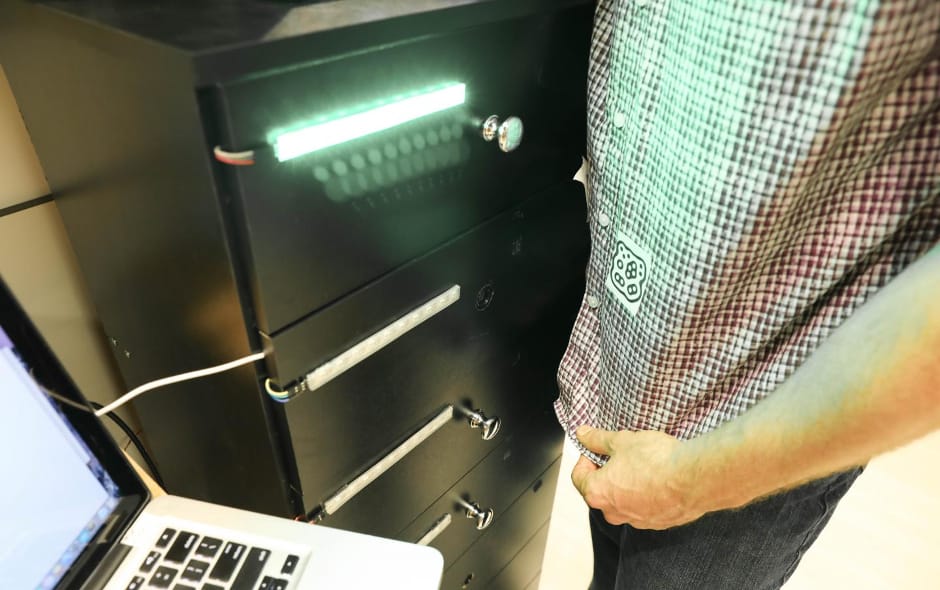
The DRESS prototype uses a combination of sensors and image recognition
Dressing is one of the most common and stressful activities for people with dementia and their carers because of the complexity of the task and lack of privacy.
Now, researchers at New York University (NYU) Rory Meyers College of Nursing, Arizona State University, and MGH Institute of Health Professions in Massachusetts have developed DRESS, an intelligent dressing system that integrates automated tracking and recognition with guided assistance. The goal is to help a person with dementia get dressed without a carer present.
The DRESS prototype is said to use a combination of sensors and image recognition to track progress during the dressing process using barcodes on clothing to identify the type, location, and orientation of a piece of clothing.
According to NYU, a five-drawer dresser - topped with a tablet, camera, and motion sensor - is organised with one piece of clothing per drawer in an order that follows an individual's dressing preferences. A skin conductance sensor worn as a bracelet monitors a person's stress levels.
In use, the carer initiates the DRESS system and monitors progress from an app. The person with dementia receives an audio prompt recorded in the carer's voice to open the top drawer, which simultaneously lights up. The clothing in the drawers contains barcodes that are detected by the camera. If an item of clothing is put on correctly, the DRESS system prompts the person to move to the next step; if it detects an error or lack of activity, audio prompts are used for correction and encouragement. If it detects ongoing issues or an increase in stress levels, the system can alert a carer that help is needed.
"Our goal is to provide assistance for people with dementia to help them age in place more gracefully, while ideally giving the carer a break as the person dresses - with the assurance that the system will alert them when the dressing process is completed or prompt them if intervention is needed," said Winslow Burleson, PhD, associate professor at NYU Rory Meyers College of Nursing, director of the NYU-X Lab, and lead author of a paper describing the study in JMIR Medical Informatics.
"The intent of the DRESS prototype is to integrate typical routines and humanised interactions, promote normalcy and safety, and allow for customisation to guide people with dementia through the dressing process."




Poll: Should the UK’s railways be renationalised?
The privatised rail service has always been propped up by public subsidy, so that companies could take their profits, instead of re-investing revenue...